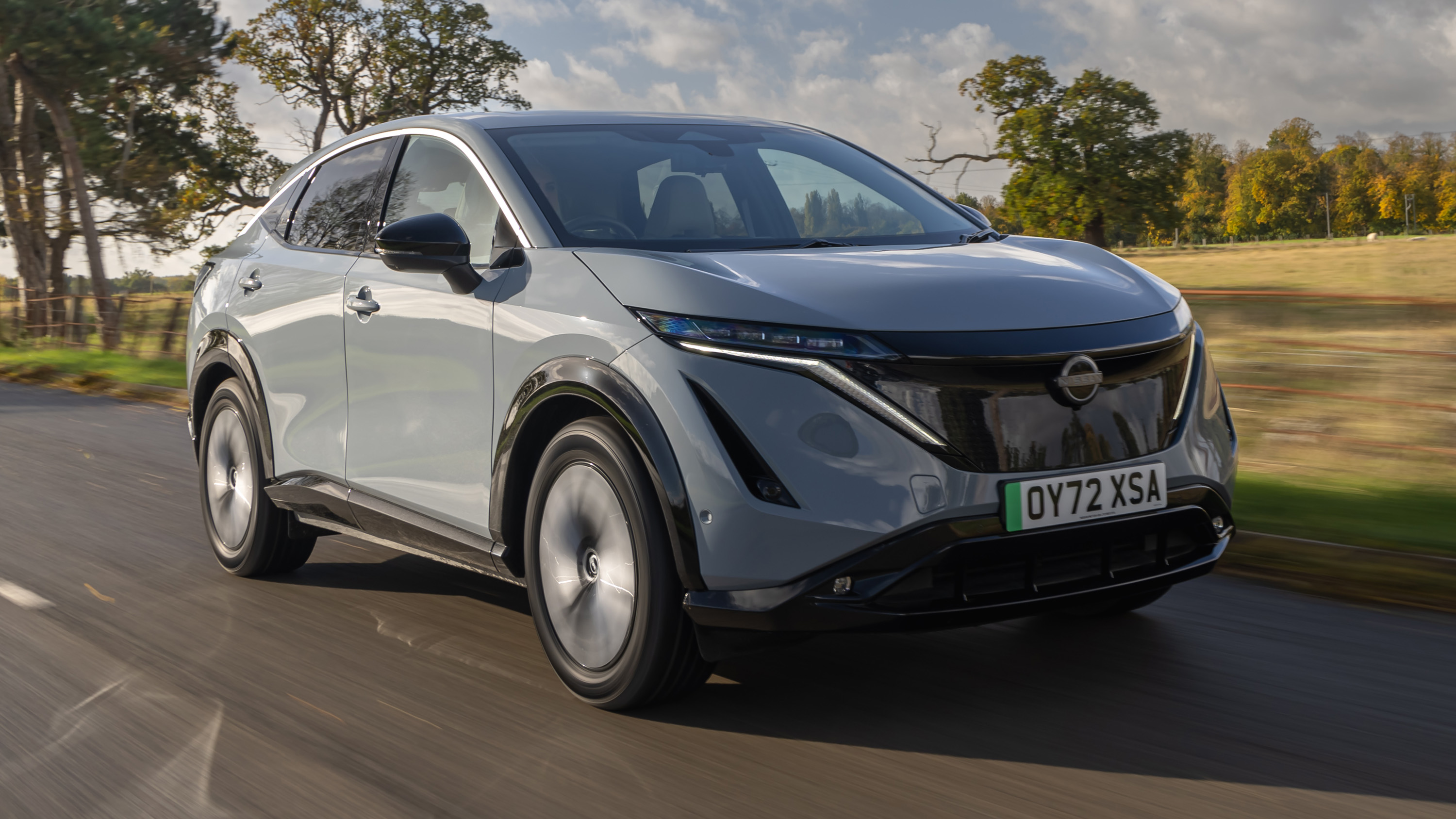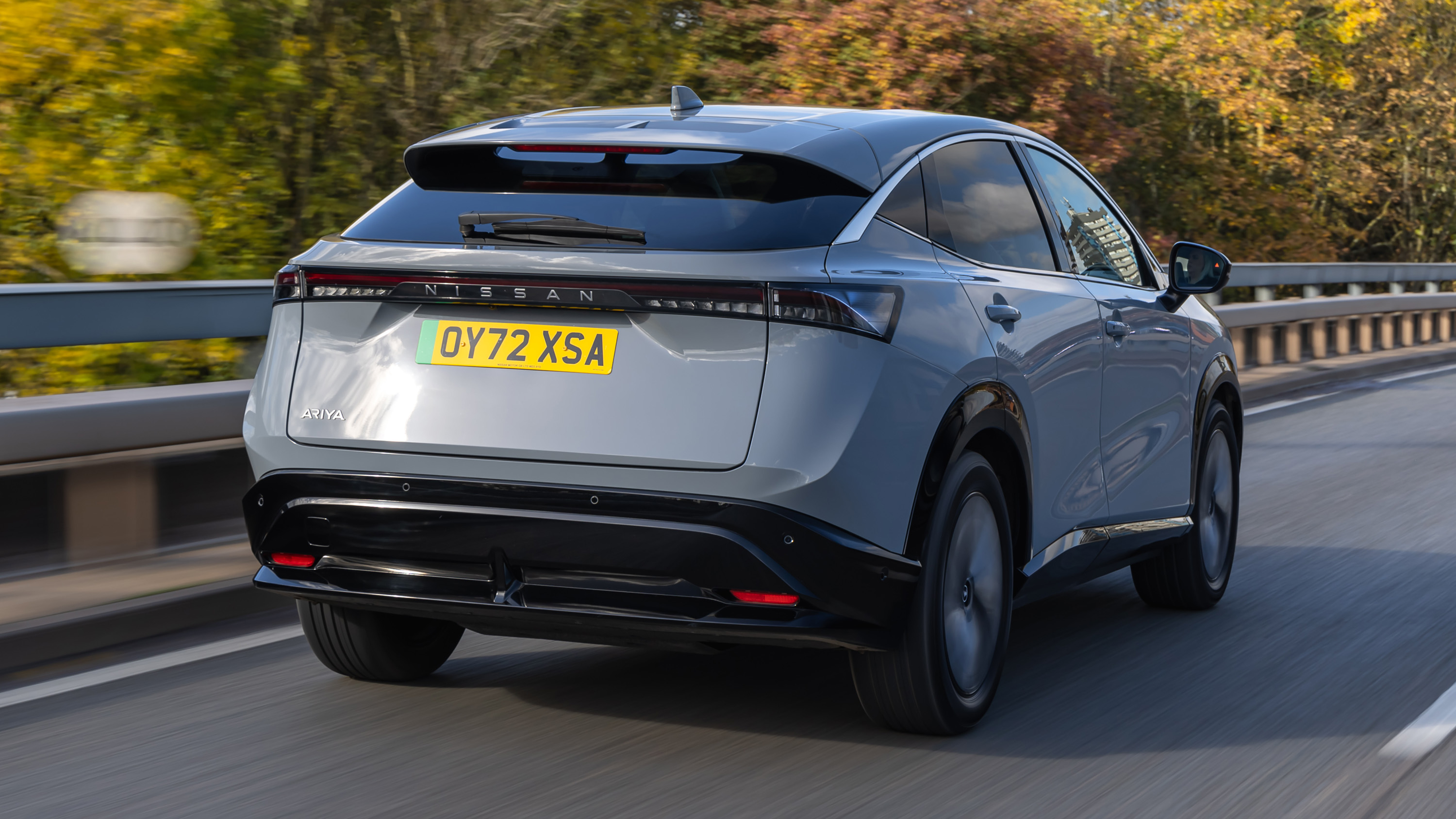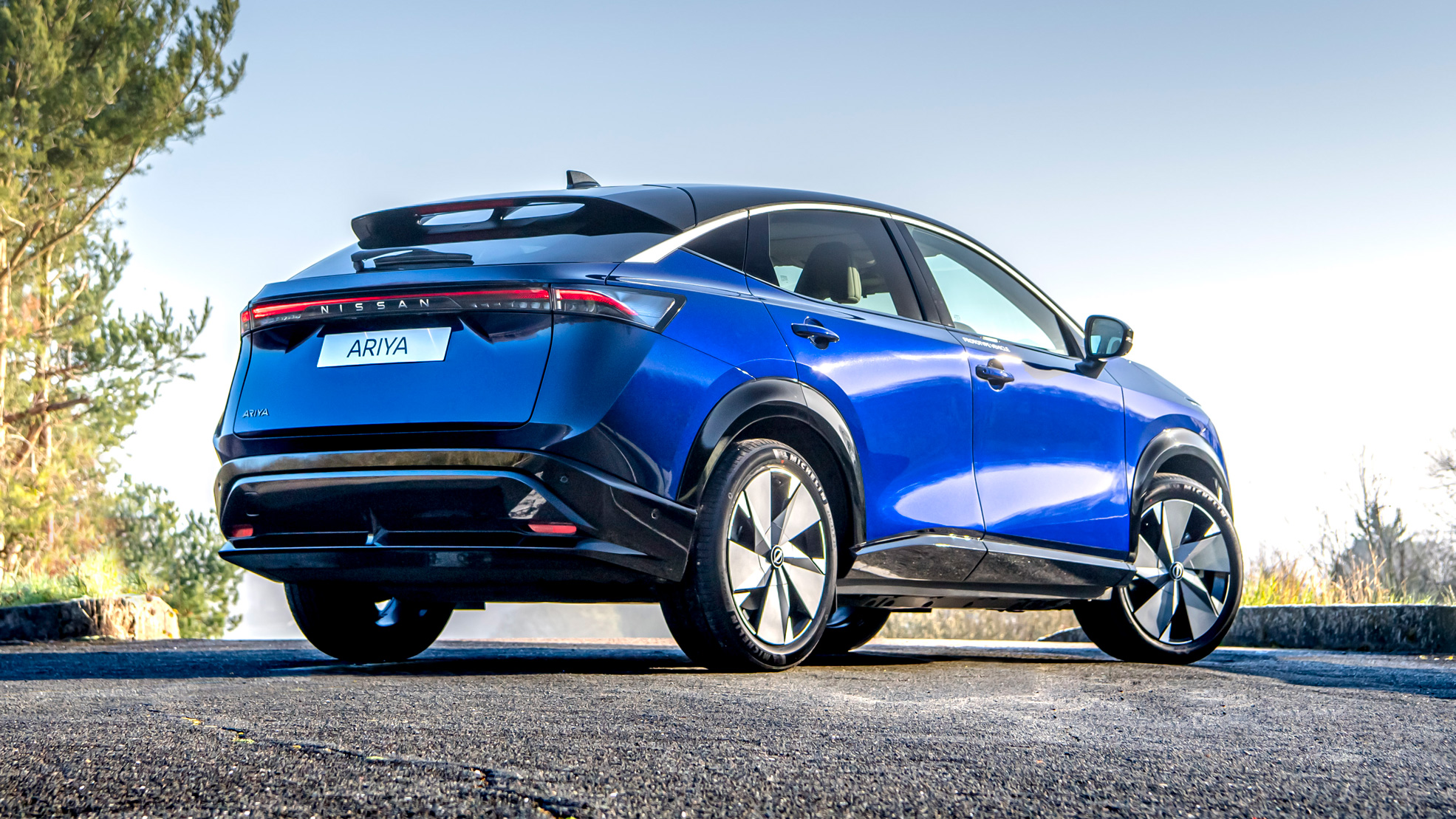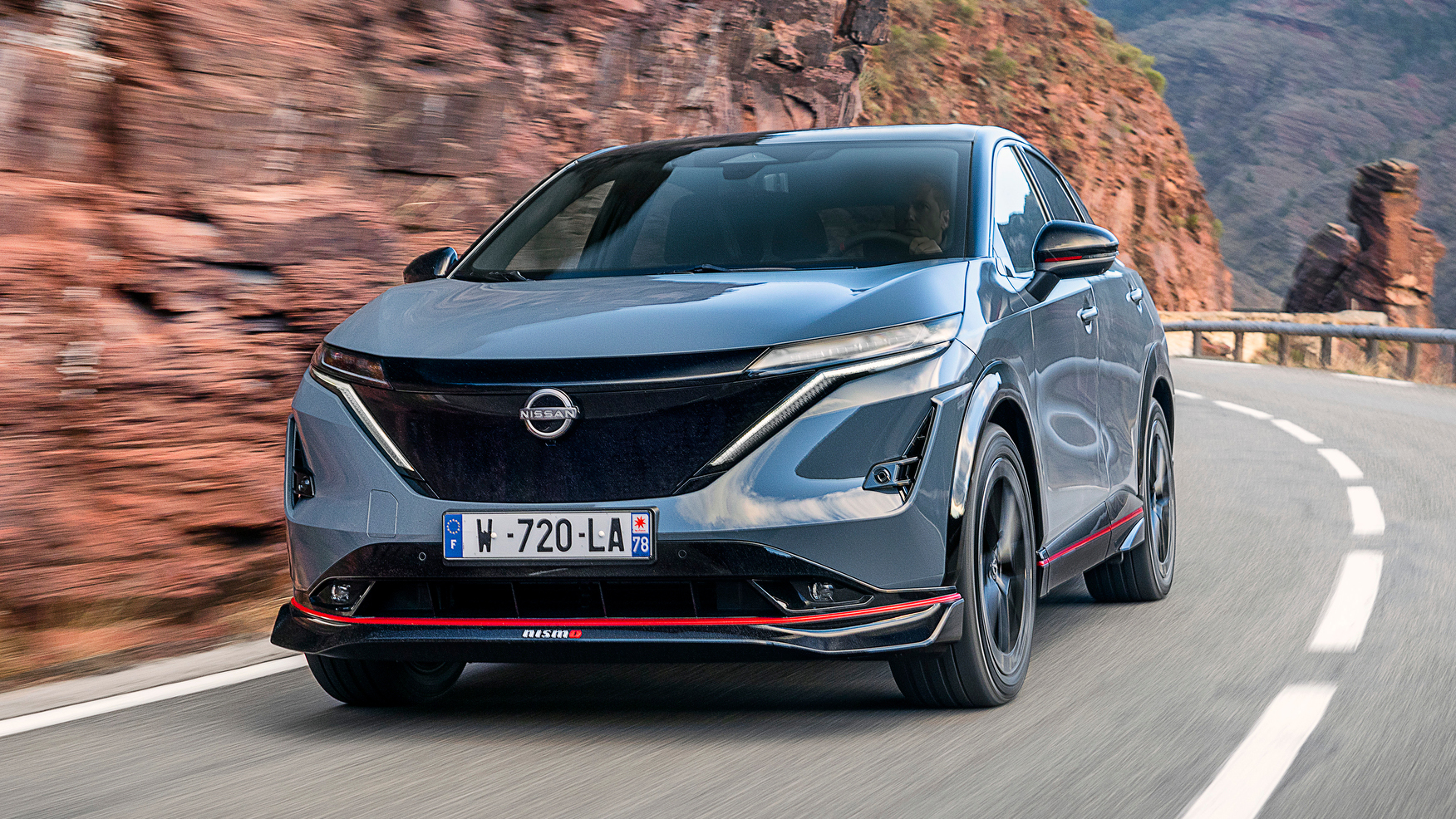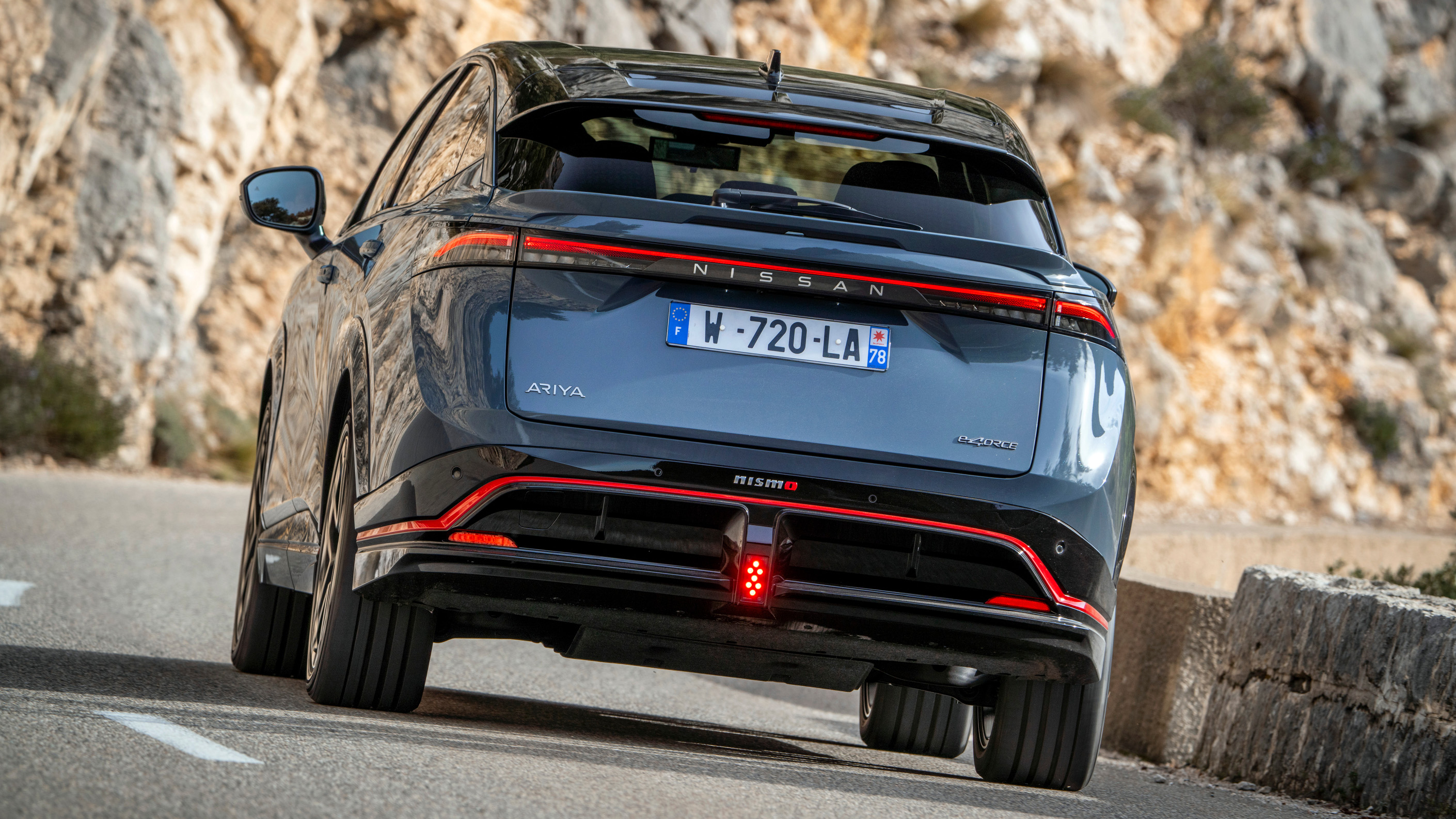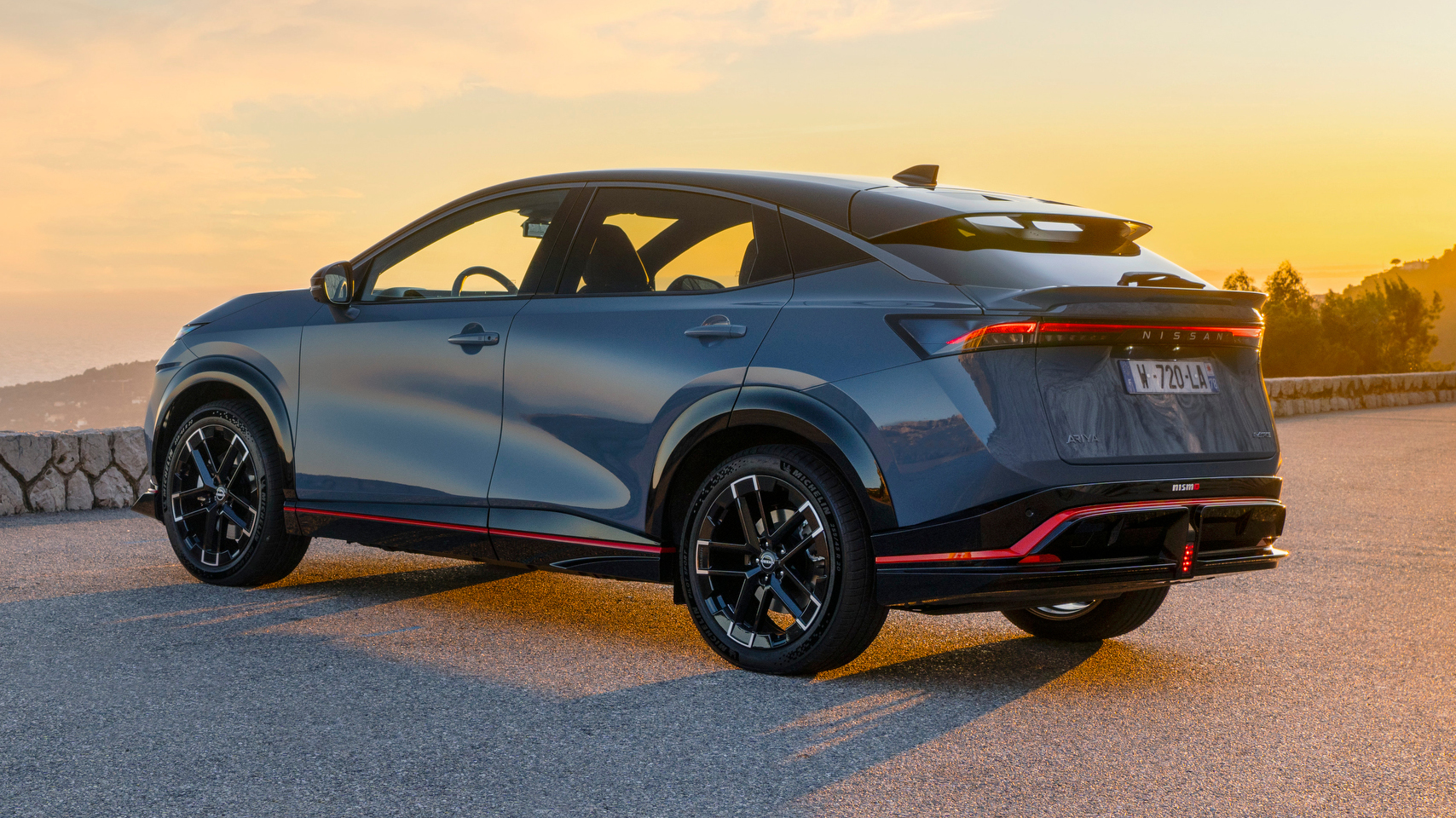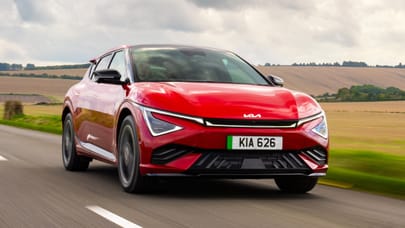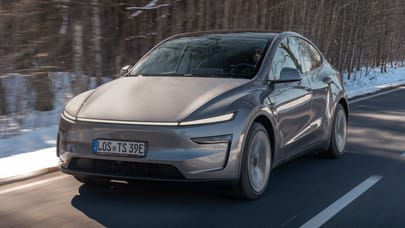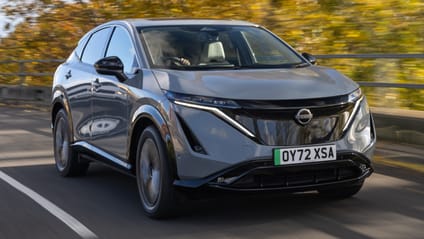
Good stuff
Lovely cabin, lots of useful equipment, decent drive, range is OK
Bad stuff
Efficiency not great, polarising looks, Nismo little more than an overpowered trim
Overview
What is it?
This is an electric crossover that went on sale in 2022 – and believe it or not it’s only Nissan’s second attempt at an electric car since it introduced the Leaf in 2010 and stole a march on everyone. And you thought the Japanese carmaker was going to be a one-hit wonder…
It still might be. But not for a lack of effort – the Ariya was designed on a new platform that it shares with the likes of the Renault Megane E-Tech Electric, the new Alpine A390 and er… the new Nissan Leaf, which will launch before the end of 2025.
It certainly looks bold...
It does. Light years away from your mum’s old Micra. It’s a simple design, with few folds, creases or slashes. It all looks very sleek, technologically advanced and Japanese, like it just crawled out of a racing game. It’s ungainly from some angles, and we can see how it might not be to everyone’s tastes, but we quite like it.
It doesn’t just look high tech, it’s got plenty of the latest gadgets onboard. Nissan says that the plastic panel at the front of the car houses all the sensors for the fancy safety gizmos and cruise control radar, with an ancient Japanese kumiko woodworking pattern, which allows the beams to pass right through. So that’s nice.
It’s got a lovely interior, too, with a soothing design that should make all family trips harmonious and peaceful. Cough. The main novelty is the switchgear symbols that shine through the wood veneer. Well, it would be a novelty but the Ariya came on sale late and the BMW iX beat it. Plus they can be a bit tough to see in direct sunlight. But if we can’t have real buttons we’d settle for weird glowing wood.
What other cars should I be looking at?
Well, we know the same entrails (on a shorter wheelbase) also carry the electric Renault Megane. The Ariya is about the size of the Tesla Model Y or VW Group's ID.4, Enyaq and Q4 e-Tron mob, or the Kia EV6 and Hyundai Ioniq 5 or Volvo EC40. But it's not as wide as some of those, which helps on narrow roads. The Ford Mustang Mach-E is bigger but barely more expensive. Oh.
What’s the line-up like?
There are four trims available, the first three (put a pin in the fourth for now) have a choice of a FWD 214bhp motor with a 63kWh battery, a FWD 238bhp motor with an 87kWh battery, or an AWD 301bhp bad boy with e-motors front and rear and the bigger battery. They have 0–62mph times of 7.5, 7.6 and 5.7 seconds respectively, and range figures around the 250-, 330- and 319-mile mark.
What about that mysterious top spec?
This is where things get interesting – the top-spec model in the range is the Ariya Nismo, which dusts off an old badge and offers an AWD 429bhp dual motor set-up and gets you to 62mph in a perky 5.0s. It’ll manage 261 miles on a full charge too if you’re very lucky.
It comes in the one shade of grey, but gains other sporty upgrades to the exterior, like 20in alloys, new spoilers front and rear and a fetching red accent round the sills.
The Ariya range starts around £40k, but you’ll need a smidge under £57k for the Nismo-badged car. We’d be tempted to save the money: the ride is wobbly and the range hit is a big one.
Our choice from the range

What's the verdict?
The Ariya looks fun, but drives a bit more like you’d expect a Nissan to. If you’re after an electric family SUV with a decent amount of range, then you could do a lot worse. It’s well equipped – that standard fit heat pump is a useful if unglamorous addition to the spec list.
You could do a lot better too, mind. We're now at the point where there's a surfeit of choice when it comes to electric crossovers, and it ultimately boils down to your design and styling preferences. If you like the look of the Nissan, and especially its interior, go right ahead – we won’t judge you. Though if you're drawn to the Nismo, seek help.
The Rivals
Trending this week
- Car Review
Ferrari Amalfi




